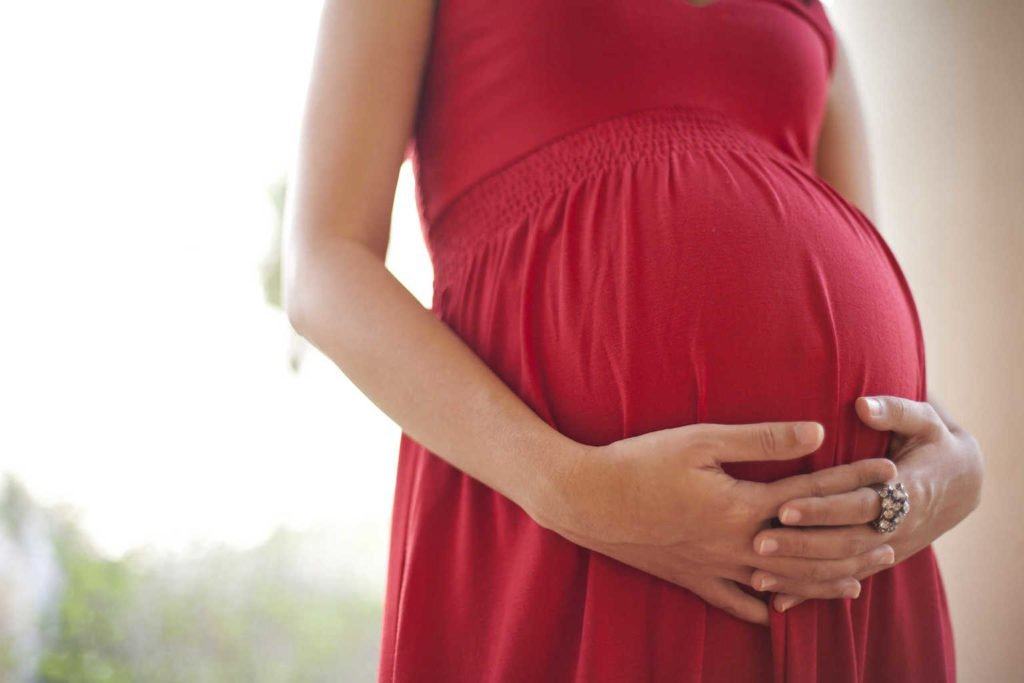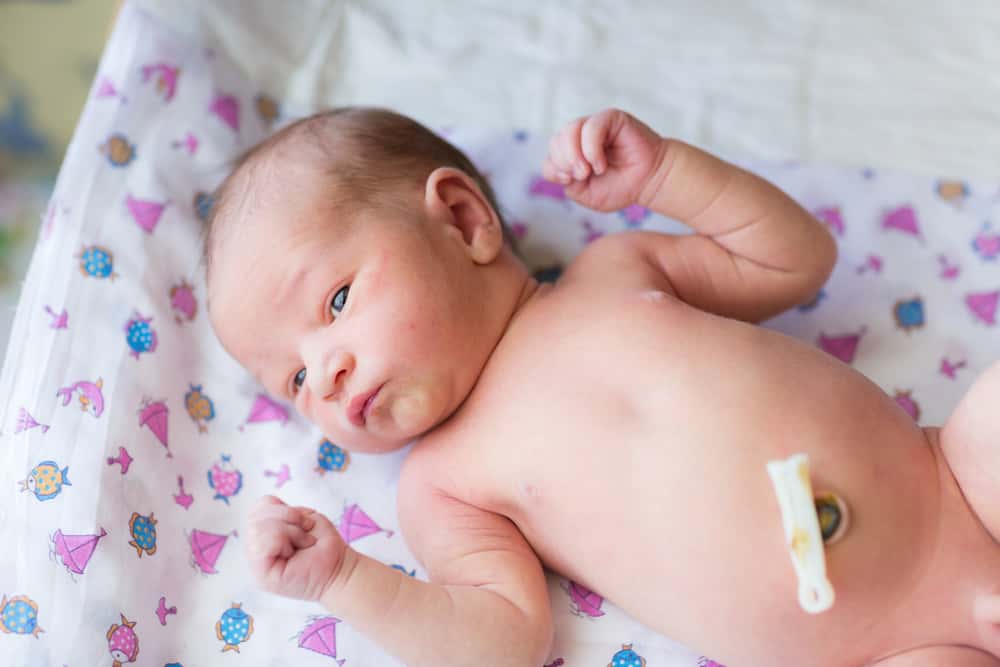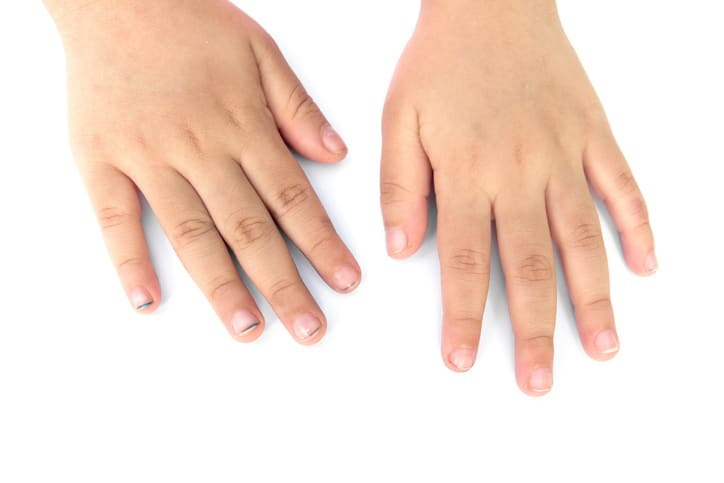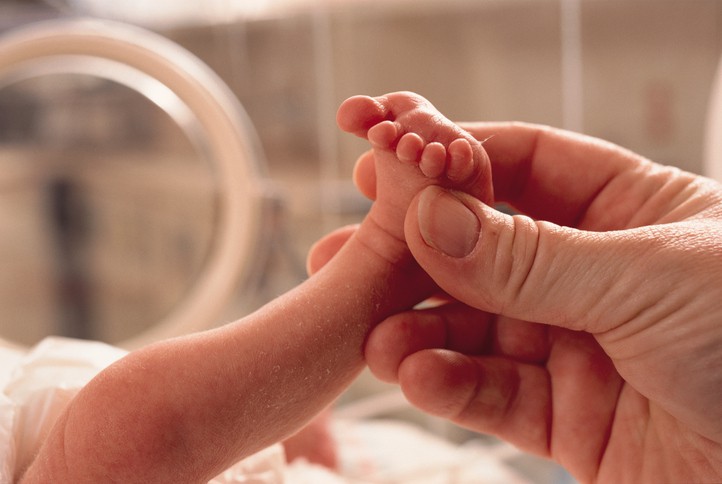Contents:
- Medical Video: Skin changes during pregnancy| Dr Dray 👶
- Are changes to the skin during pregnancy dangerous?
- Why is my skin darker than usual?
- What is the dark line that divides my stomach?
- People say women's skin looks "glowing"And more radiant during pregnancy. Is this true?
- Why do the veins in the cheeks look clear?
- Why did I become acne?
- Why do I have stretch marks?
- What can I do to relieve blisters?
- Why is my skin more sensitive than usual?
- Why does my skin feel itchy?
- General itching
- Severe itching
- Rash
Medical Video: Skin changes during pregnancy| Dr Dray 👶
There are lots of changes that occur inside outside your body during pregnancy. This includes various changes that occur in other areas besides your stomach.
During pregnancy, you may experience:
- Stretch marks
- Skin discoloration (pigmentation)
- Spots
- Blisters
- Broken blood vessels
- Itchy or sensitive skin
Changes in hormone levels and your immune system are one of the causes. Most skin changes during pregnancy will disappear after your baby is born. Some skin changes, such as stretch marks and certain pigmentation can decrease in the family. If your mother or sibling experiences it during pregnancy, you might also experience it.
Are changes to the skin during pregnancy dangerous?
Common changes in the skin are not related to health problems. However, talk to your doctor if your skin is inflamed or has a rash, irritation, or itching, which lasts more than a few days.
If you already have a skin condition such as eczema or psoriosis, this may worsen or improve during pregnancy.
Be aware of some skin discoloration that can be caused by other conditions that are not related to your pregnancy. Always check with your doctor if you notice any discoloration of the skin or changes in the size of the mole. If pigmentation changes are accompanied by pain, pain, or redness, seek medical attention immediately.
Why is my skin darker than usual?
Some parts of the skin that darken are usually one of the symptoms of pregnancy. Most expectant mothers feel the color of the nipple and the surrounding area (the areola) becomes darker.
You will notice other pigmented areas such as moles and spots also darken. However, as time goes on it will fade back as usual.
The brown pigmentation section of the forehead, cheeks and neck is called chloasma. If you have a darker skin tone, the chloasma will look more brightly colored.
Chloasma is caused by the body that produces excess melanin, which can protect the skin from ultraviolet (UV). About ibu prospective mothers experience this condition.
Being in the sun will make the stripes darker and more visible. To protect your skin, use sunscreen (SPF 15 or more) or a hat when you travel.
If you don't like the stripe, use it foundation to disguise it. Stripes will fade within 3 months after your baby is born, but 1 in 10 mothers have stripes that do not disappear.
What is the dark line that divides my stomach?
The vertical line on your stomach is called linea nigra. Usually this line has a width of up to 1 cm and sometimes crosses the belly button. Linea nigra usually appears around the second trimester.
Linea nigra is caused by pigmentation due to hormonal changes, where the abdominal muscles stretch and slightly separate to make room for the baby. The line will fade within a few weeks after you give birth.
People say women's skin looks "glowing"And more radiant during pregnancy. Is this true?
"Berseri" or "glowing"During pregnancy is not just lip service. Your skin holds more fluids during pregnancy, which makes the skin more supple and removes wrinkles.
Blushed skin is caused by increased levels of the hormone progesterone and blood circulation in the body. This can also make you feel warmer and sometimes the skin flushes.
The disadvantage of this effect is that you will look swollen due to water retention and more visible redness on your facial skin. This condition will subside after you give birth. Meanwhile, you can disguise it with foundation the moisturizing.
Remember to drink lots of water. Many benefits will be felt on the skin if you are well hydrated.
Why do the veins in the cheeks look clear?
Broken small veins (capillaries) are known as spider veins (spider veins) or naevi. This is common in pregnancy, especially if you are prone to this condition.
The amount of blood circulating in the body puts pressure on the capillaries, which are also more sensitive during pregnancy.
Protect your face from extreme heat or cold. Blood vessels will fade when hormone levels decrease after you give birth.
Why did I become acne?
You may get acne in the first trimester. High levels of hormones increase the production of sebum, an oil that maintains the elasticity of facial skin. Too much sebum can close the pores, so oily and pimpled skin.
Clean your face regularly with fine soap and warm water or facial cleanser. If your skin is dry, use an oil-free moisturizer. If you use facial makeup, clean it before going to bed.
Do not use creams or acne medications unless advised by a doctor. Some anti-acne products should not be used during pregnancy. Fortunately, a few weeks after your baby is born, your skin will return to its original state.
Why do I have stretch marks?
You may notice stretch marks appear as you gain weight. Pregnancy causes your skin to be more easily attracted than usual. High levels of hormones can also disrupt the balance of protein on the skin and make it thinner.
After pregnancy, stretch marks will turn silvery white. This can happen in 6 months.
Unfortunately, not much can be done to prevent stretch marks, but can be reduced by:
- Avoid gaining weight too fast
- Massaging the stomach with oil or cream to increase the growth of new tissue
- Eat nutrient-rich foods
- Take vitamins E and C, zinc (zinc) and silica to keep skin healthy
What can I do to relieve blisters?
With weight gain, you will notice that the skin between the thighs or under the breast is blisters, causing the skin to become inflamed, flaking and slightly smelly. This condition is known as intertrigo.
If you experience these conditions:
- Keep the infected area dry
- Use powder to absorb moisture
- Use cotton clothing
- Avoid wearing tight clothes
Consult your doctor, especially if you sweat a lot because it can cause intertrigo candidal fungal infections. It is important to treat the condition before you give birth, because it can decrease in your baby.
Why is my skin more sensitive than usual?
High levels of hormones and the condition of the skin that is attracted to and thinner can cause the skin to become sensitive.
Soap and detergent can cause irritation. The skin conditions that you have before pregnancy, such as eczema, can get worse. However, sometimes it can also happen otherwise. Women with psoriasis feel their condition improves after pregnancy.
You can feel your skin burn more easily when exposed to sunlight. Use sunscreen with SPF 15 or more, and avoid being in the sun for long periods of time.
To minimize sensitivity, choose clothes made of cotton and keep your body moist.
Why does my skin feel itchy?
It is natural for an itchy rash and rash to occur without cause. Nearly ¼ prospective mothers experience itchy skin.
General itching
You will feel more sensitive to ingredients that usually do not affect you, such as chlorine in the pool.
Apply calamine lotion to the area to help relieve itching. If the rash or irritation lasts more than a few days, consult a doctor.
Severe itching
There are relatively rare conditions, namely obstetric cholestasis (OC) which can cause itching throughout the body. Itching can be more intense on the palms or feet. Call your doctor if you experience these symptoms.
Rash
There are some red and itchy, but harmless rashes caused by pregnancy, such as:
- Atopic Eruption of Pregnancy (AEP)
- Polymorphic Eruption of Pregnancy (PEP)
AEP causes itchy bumps on the skin and usually appears in the first trimester in 1 in 300 pregnant women. This condition is not dangerous and will disappear after your baby is born.
You can be vulnerable to AEP, if you have:
- Eczema
- Asthma
- Food allergy
Applying an emollient cream can relieve itching. Doctors can prescribe antihistamines to reduce itching at night.
If you experience PEP, you will notice it in your stomach, around the sign of wrinkles. The rash can spread to the buttocks and thighs. PEP is more common if:
- You have a first baby
- You have twins
- One woman in your family has experienced PEP
Doctors can prescribe antihistamines or steroid creams to reduce itching. PEP usually disappears 1-2 weeks after you give birth.
Hello Health Group does not provide medical advice, diagnosis or treatment.












